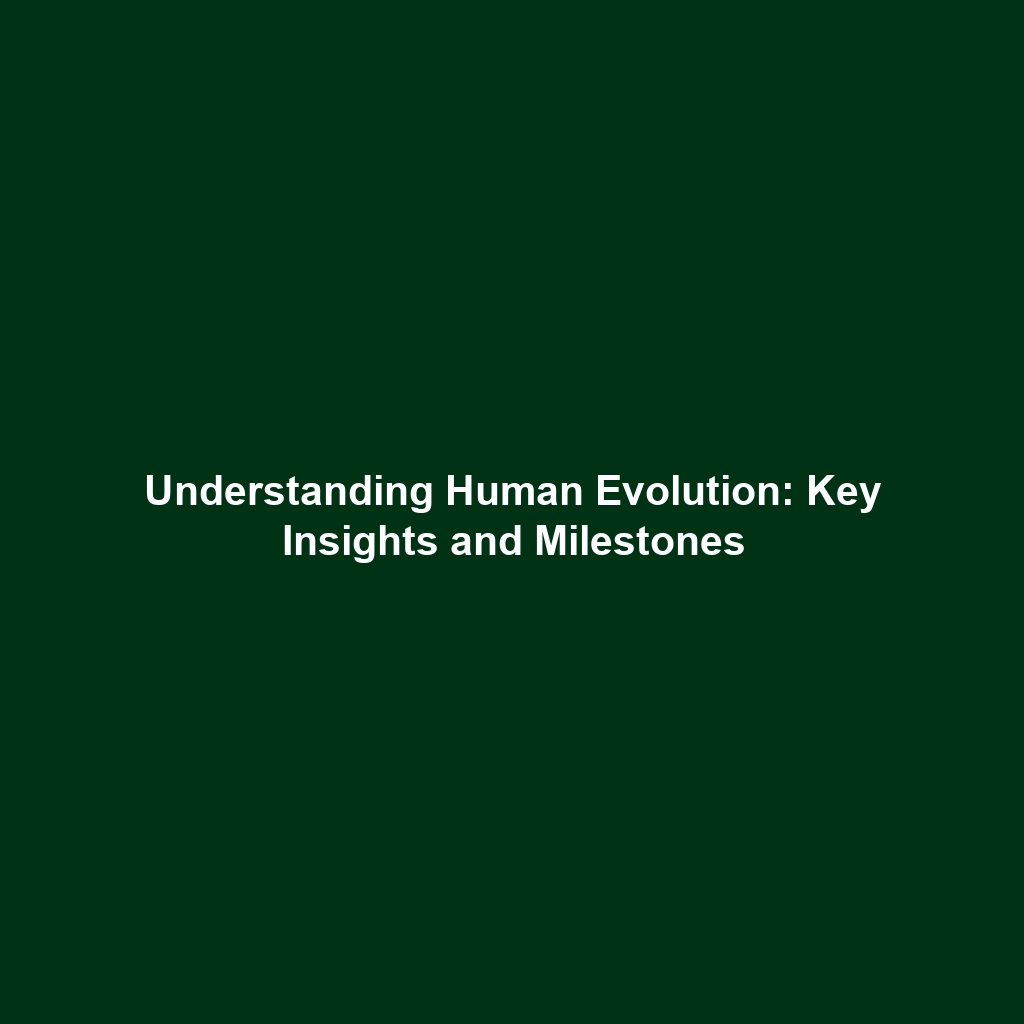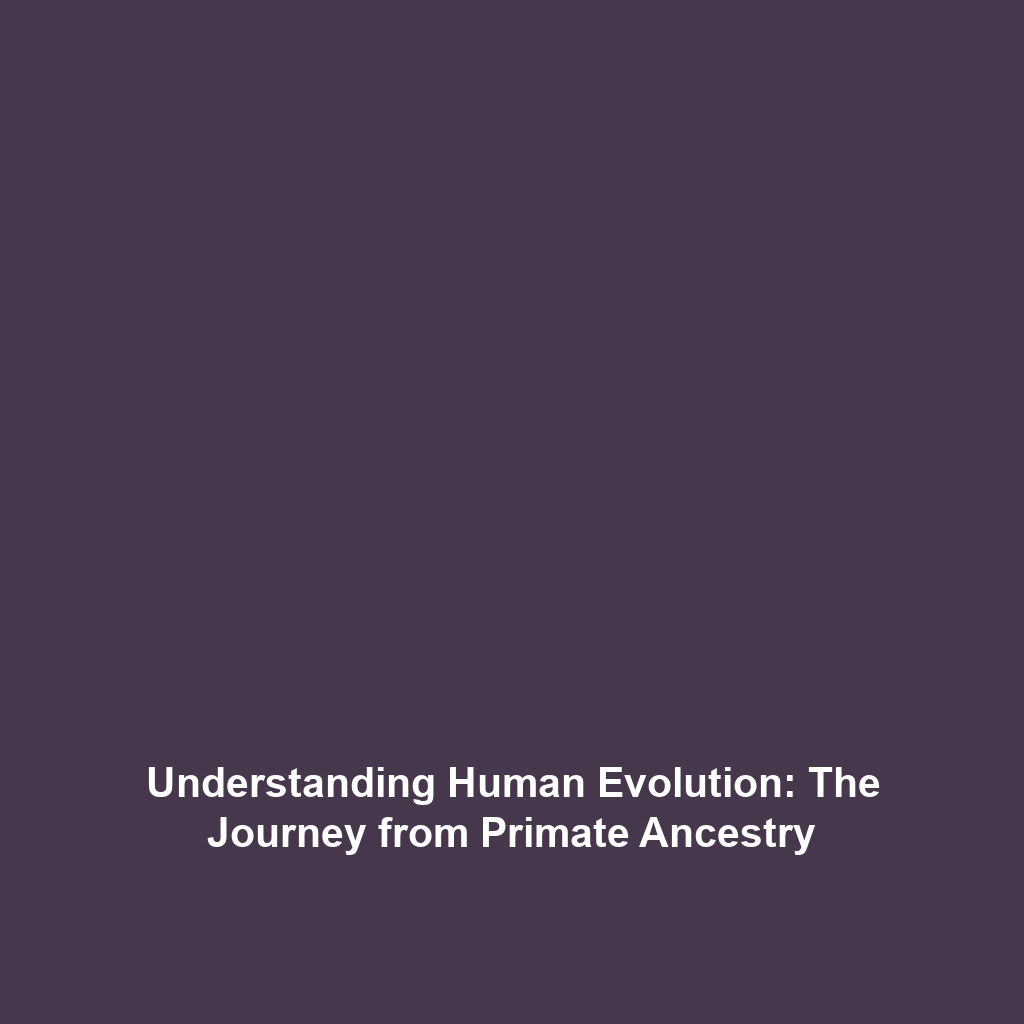Introduction to Human Evolution
The study of human evolution unveils the complex journey of our species, tracing our ancestry and understanding the biological and cultural shifts that have shaped humanity. This introductory overview sheds light on the significance of human evolution in comprehending our place within the broader context of the natural world and addresses critical existing questions about human development and adaptation.
Key Concepts of Human Evolution
Understanding human evolution requires familiarity with key concepts that define the field:
- Natural Selection: This principle explains how species evolve over time through the survival and reproduction of individuals best suited to their environment.
- Hominins: The group of species that includes modern humans and our closest extinct relatives, highlighting our unique traits and behaviors.
- Genetic Drift: This concept delves into how random changes in population genetics can affect evolution independently of natural selection.
- Fossil Evidence: Fossils provide invaluable insights into our evolutionary history, revealing various hominid species and their characteristics.
Each of these concepts plays a pivotal role in the overall understanding of human evolution, connecting genetics, paleontology, and anthropology.
Applications and Real-World Uses of Human Evolution
Research into human evolution has profound implications and applications in various fields:
- Medicine: Insights from human evolution can inform medical practices, such as understanding genetic predispositions to certain diseases.
- Anthropology: The study enhances anthropological approaches to understand cultural evolution and the diaspora of human populations.
- Conservation biology: Knowledge about our evolutionary past aids in wildlife conservation efforts and biodiversity preservation.
These applications demonstrate how understanding human evolution is integral to multiple disciplines and societal challenges.
Current Challenges in Human Evolution Studies
Studying human evolution encompasses several challenges and limitations:
- Incomplete Fossil Record: The scarcity of fossils makes it difficult to create a complete picture of human ancestry.
- Interpretation Biases: Researchers’ biases can influence interpretations, leading to conflicting theories about human evolution.
- Technological Limitations: Current technologies may restrict the ability to analyze ancient DNA effectively.
These challenges necessitate ongoing research and innovation to bridge the gaps in our understanding.
Future Research and Innovations in Human Evolution
As we advance, several promising research areas are emerging in human evolution:
- Genomic Technologies: Next-generation sequencing technologies may soon allow researchers to extract and analyze ancient DNA with unprecedented accuracy.
- 3D Imaging: Advanced imaging techniques can provide new insights into fossil structures and their implications for understanding human morphology.
- Interdisciplinary Studies: Collaborations among geneticists, anthropologists, and environmental scientists are paving the way for holistic evolutionary studies.
This innovative research holds the potential to redefine our understanding of what it means to be human.
Conclusion
This introduction to human evolution highlights its significance, encompassing key concepts and the broader implications of our evolutionary journey. As research advances, understanding the evolutionary narrative will become increasingly vital to deciphering human existence on Earth. For those interested in delving deeper into this subject, explore our additional resources on Human Origins and Our Evolutionary Journey.

